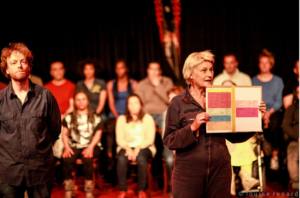Het Migratieberaad
C4C is een actieve deelnemer aan “Het Migratieberaad”, een onafhankelijk burgerinitiatief dat bestaat uit 10 mensen met verschillende professionele achtergrond die zich bezighouden met de vraag hoe we het gesprek over migratie een constructievere en realistischere wending kunnen geven en hoe we op termijn tot een toekomstbestendiger migratiebeleid komen. De urgentie daarvan is, zeker niet na de laatste verkiezingen en sinds het aantreden van het huidige kabinet, enorm. Het goede gesprek over migratie is meer dan eens nodig.
De afgelopen 2 jaar hebben we zo’n 70 gesprekken gevoerd met mensen op strategische posities dwars door de politieke linies heen in de samenleving (veel burgemeesters en wethouders, Commissarissen vd Koning, de VNG, VNONCW en diverse ondernemers, vakbonden, SER, NGO’s en de Raad van Kerken, wetenschappers/adviesraden, (ex)politici e.a.). Aanleiding daartoe voor ons was de enorme kloof tussen wat deskundigen adviseren en het politieke beleid, daarnaast ook de polarisatie en desinformatie rondom dit onderwerp.
We hebben gesprekspartners gevraagd wat zij de belangrijkste bouwstenen vinden van een toekomstgericht migratiebeleid, hoe we daar komen en wie welke rol zou moeten spelen in het debat hierover. Het leverde vele goede en open gesprekken op, met veel ideeën voor een houdbaarder beleid en een aantal opmerkelijke conclusies, zeker gezien de toon in het landelijke debat op dit moment. We werken er aan door en hopen enige verandering te bewerkstelligen!
AFRICA
Guinea – Conakry
QUESTIONING CULTURAL IDEALS OF FEMININITY AND MODESTY IN GUINEA
In Guinea the widespread practice of Female Genital Mutilation (FGM) contributes to physical and mental health problems. A persistent belief that Female Genital Mutilation increases the chance of marriage, which helps to avoid economic and social exclusion, makes it difficult to let go of the practice.
As C4C we work together with Fraternité Médicale Guinée, an NGO based in Guinea-Conakry specialized in medical and mental health care, on a three year project (2020-2023) to reinforce the health and well-being of women and girls. The role of C4C in this project is to contribute to the scientific publication and dissemination of the achieved results.
Part of our work is to conduct discussions with groups of women and girls in rural areas about cultural ideals of femininity and modesty. Female Genital Mutilation appears also to be the result of their (collective) conviction that removing parts of the anatomy enables them to remain « clean and beautiful ».
As C4C we are in the process of collecting relevant information that should inform us how to start up a process of change towards reinforced women’s health and self-esteem. One of the ideas is to develop visual material showing how women define their identity, emphasizing the similarities between Guinean girls and their age-peers in western countries.
Any ideas, comments to make this project possible are welcome!
Burundi
PROMOTING A BEHAVIORAL CHANGE IN VIOLENT SUBURBS OF BURUNDI
In Burundi, extreme poverty drives girls into transactional sex and unmarried motherhood. Early and unwanted pregnancy, motherhood and unsafe abortion among adolescents and young women have serious social, health and economic repercussions for both mother and child, as well as the community as a whole.
As C4C we have established a close relationship with a Burundian local organization « Action de la Femme pour le Bien- Etre de la Famille », AFBEF-KIREMESHA, established by four Burundian women that are familiar with the local context in the most violent neighbourhoods of Bujumbura, the capital of Burundi. Together we developed a simple and practical approach to break vicious circles of poverty, social and financial exclusion and violence, while building on existing structures, practices, traditions and protection mechanisms within these neighbourhoods. By conducting extensive mapping exercises per neighbourhood together with the population, most pressing local needs and potential resources are identified. At the same moment the most competent and daring agents of change are invited to take part in the action– with a specific focus on young women. Together with these local agents of change, networks of some 50 people per neighbourhood (G50) are created with the objective to restore trust. Old relationships are rediscovered, new ones are forged, and communities are mobilized to save money and address their major problems together. Adolescents and young women at risk to be influenced by negative behavioural patterns are identified through these networks and invited to participate in groups sessions that focus on a combination of healing, social and economic inclusion. As healthy relationships between people grow, the likelihood of violence between them declines.
At this very moment we are looking for funds that make it possible to reinforce and expand the work of AFBEF-KIREMESHA in Burundi. By documenting what we hear and see, C4C aims to connect and bridge local knowledge to international recognition; collective trauma to productive collaboration; and research to implementation.
Any donation to help this initiative is welcome!
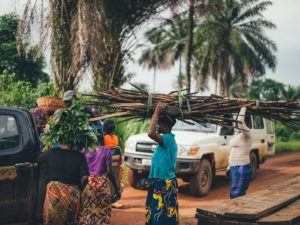
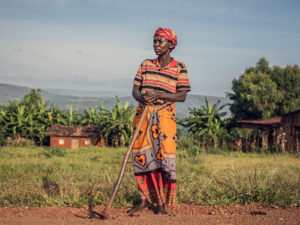
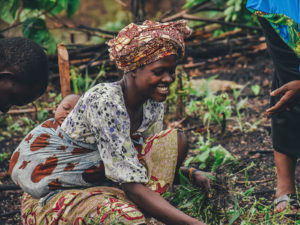
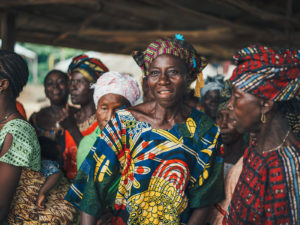
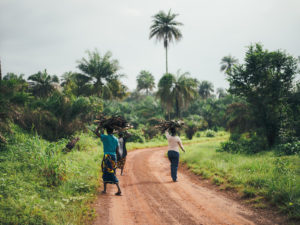
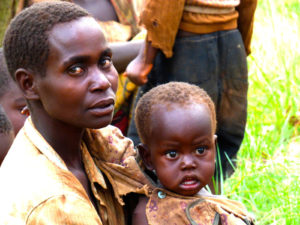
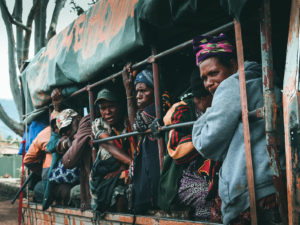
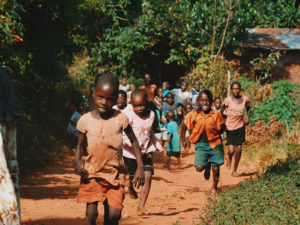
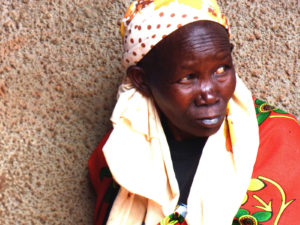
Previous
Next
ASIA
Cambodia
Prevention of gender-based violence in Cambodia
In Cambodia, violence against women is alarming, with one in 89% of them not reporting it. More than half or all children in Cambodia and experience violence, and often based on gender.
Khmer culture and tradition are often tasks as explanations for the gap between legislation or international standards and violence against women and girls. The challenge is to change the ‘tradition’ of harming women, and to convince people of the value of behavioral change. The project uses the strength of culture to transform ‘traditional’ beliefs and behavior patterns.
C4C works with Banteay Srei and the Women’s Resource Center in Cambodia – see the news pages for an update.
The current National Action Plan to Prevent Violence Against Women (NAPVAW) requires a Theory of Change built on what makes sense to ordinary men and women . Accordingly, the project poses that culture can and must be part of the solution, rather than part of the problem.
C4C works with Monash University and Buddhism for Health, a local Non-governmental Organization, implementing development activities in the Kingdom of Cambodia in a neutral, non-racist, non-religious, and not for profit basis.
In the same vein, we are exploring options to pilot new forms of ELDERLY CARE in Cambodia.
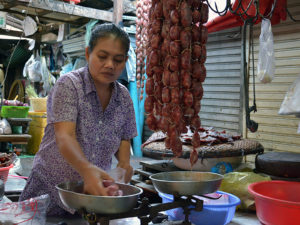
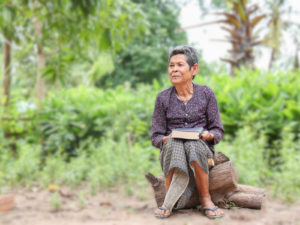
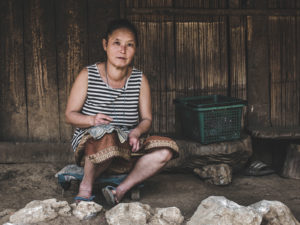
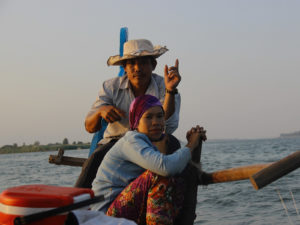

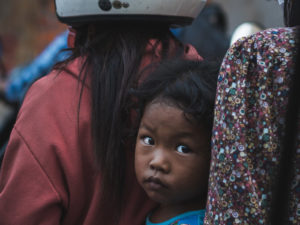
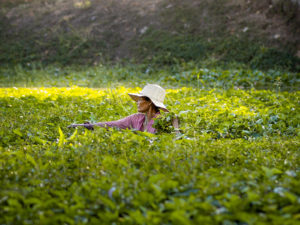
Previous
Next
EUROPE
BRUSSELS, BELGIUM
USING THEATRE: LES LIAISONS JOYEUSES
See our video clip for a brief summary here !
In Brussels, many migrant women without legal status live in precarious situations while having no or limited access to health care and other basic services. In 2019/2020 Médecins du Monde Belgium initiated a project with the objective to improve feelings of trust, self-confidence and social cohesion among this group of vulnerable people.
The project was implemented with the help of Theatre & Reconciliation (T&R), a Belgian NGO with extensive expertise in the development of theatre productions with and for vulnerable people. Making use of theatre when working with groups of people that have faced severe adversities and stressful periods, has proven to be successful in different contexts. Within this specific project women from Guinea, Cameroun, Congo and Morocco, without legal identity, together with students, patients of a detox clinic and a couple of semi-professional actors have been developing a theatre production under the stewardship of T&R. Rehearsals over a period of 5 weeks in small groups resulted in a final theatre production; some 65 actors played two times for an audience of some 500 people in total.
The role of C4C within this specific context was to conduct (action) research to find out whether the initiative resulted in improved feelings of well-being among migrants that participated in the project ad to explore if (pre-conceived) ideas among spectators about migrants would change after having seen the final performances.
Results. The rehearsals and performances appeared to be an excellent medium to gently re-establish feelings of trust, confidence and social interaction while acknowledging, de-pathologizing and expressing emotions. We have witnessed how feeling of shyness made place for the expression of emotions like sadness, anger and frustration and as time evolved our target group started to take the lead in different scenes.
Discussions after the final performances revealed that positive feelings as experienced during the implementation phase continued after the end of the project. The women continued to visit each other; some decided to find a new legal advisor; some of them started to share experiences on Facebook; and some were invited to participate in a new production of T&R.
A simple evaluation of the effect on the audience showed remarkable results; on the question if people wanted to stay engaged and act as a reference person for the migrant population, half of the people answered positively and provided their contact details.
COLOGNE, GERMANY
TRANSCULTURAL LABORATORY, A “3rd SPACE”
In 2019, Culture 4 Change has been asked to participate in Ein transkulturelles Bühnen-Projekt in Drei Modules in Cologne, Germany, a three-year project to improve the living conditions in some neighbourhoods of Cologne where people of different cultures live together in difficult circumstances. Final aim of this initiative is to enable the population to find creative solutions that should lead to more social cohesion within their neighbourhoods. The project is based on two theories.
- The Third Space Theory, a postcolonial sociolinguistic theory of identity and community realized through language or education, of Homi K. Bhabha.
- The Polyvagal Theory ; a neuroscientific theory developed by Stephen W. Porges that explains what happens in traumatic / stressful situations and which has many implications for the study of stress, emotion, and social behaviour on a collective level.
During workshops people are invited to meet and express what they feel in a safe (3rd) space laboratory. The hypothesis is that embodying emotions and their opposites together with others, through movement, dance and sound, opens up a new space of experience and makes it possible to transform former individual action in collective engagement.
The role of C4C is to conduct (action) research during the implementation of the project. C4C developed and applied a simple monitoring tool measuring levels of (dis)stress and well-being among participants before and after the workshops.
Preliminary results (after 5 workshops with in total 62 participants) indicate a significant positive influence of this experience on the level of social engagement among participants.
The project has been stopped temporarily due to a lack of funding. The 3rd Space Laboratory in Cologne is looking for additional funding to continue this project.

